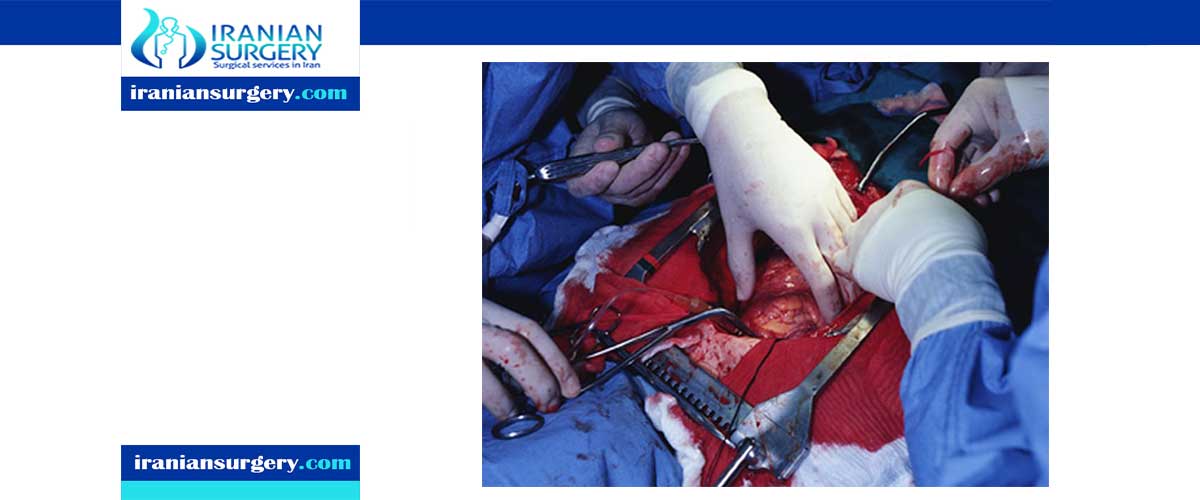What is the Heart bypass procedure?
Before Heart bypass surgery
During coronary artery bypass surgery
After Coronary Artery Bypass Surgery
Pros and cons of heart bypass surgery
Pros and cons of coronary bypass surgery
What are the benefits of heart bypass surgery?
What is the Heart bypass procedure?
Doctors typically have a range of options at their disposal to fix the blockage. If left untreated, coronary artery disease can lead to heart attack and even death.
When possible, doctors may try to resolve the issue of blocked arteries with medication and less-invasive procedures, such as a stent.
If these options do not work or are not suitable for an individual, surgeons might decide to perform heart bypass surgery.
Heart bypass surgery is one of the most effective weapons against blocked arteries and the problems they cause.
The medical name for heart bypass surgery is coronary artery bypass graft (CABG).
________________________________________________________________________________________
Plan your Heart surgery in Iran with the Best cardiologist surgeon.
Iranian Surgery is a medical tourism company in Iran that cooperates with the best cardiologist surgeon, specialists and hospitals in Iran and offers world-class treatments at an affordable cost.
_________________________________________________________________________________________
Read more about : Iranian eye surgeons restored vision to the eyes of an Omani child.
Read more about : Coronary artery bypass surgery (CABG) success story
Before Heart bypass surgery
Your doctor will give you specific instructions about activity restrictions and changes in your diet or medications you should make before surgery.
Make arrangements for after your surgery. It will take about four to six weeks for you to recover to the point where you can resume driving, return to work and perform daily chores.
Read more about: Heart bypass surgery recovery time
During Coronary Artery Bypass Surgery
You will have general anesthesia for the surgery.
The first step in the surgery is for the surgeon to prepare the arteries or remove the veins that will be used as bypass grafts.
Next, the surgeon makes an incision down the center of your chest, through your sternum (breast bone), so your heart and coronary arteries can be seen. Your heart will likely be stopped for a short time so the surgeon can perform the bypass procedure on a “still” heart. During this time, the heart-lung bypass machine takes over for the heart and lungs, so blood keeps moving throughout the rest of the body. This is called “on-pump” surgery. The pump is turned off after the grafts are in place. Your heart beat and blood flow return to normal.
The surgeon takes a section of healthy blood vessel, often from inside the chest wall or from the lower leg, and attaches the ends above and below the blocked artery so that blood flow is redirected around the narrowed part of the diseased artery.
Other surgical techniques your surgeon might use include:
Off-pump or beating-heart surgery. This procedure allows surgery to be done on the beating heart using special equipment to stabilize the area of the heart the surgeon is working on. This type of surgery is challenging because the heart is still moving. It's not an option for everyone.
Minimally invasive surgery. A surgeon performs coronary bypass through small incisions in the chest, often with the use of robotics and video imaging that help the surgeon operate in a small area. Variations of minimally invasive surgery might be called port-access or keyhole surgery.
Read more about : Mini gastric bypass surgery side effects
Read more about : Heart Valve Replacement Surgery
Read more about : Balloon Valvuloplasty Surgery
Read more about : Coronary Angiography In Iran
Read more about : Peripheral Angioplasty Procedure In Iran
Read more about: Heart bypass surgery
Dr. Mohammadreza Mirzaaghayan
Cardiac surgeon
Chief of cardiac surgery unit
Department of Surgery
Markaz Tebbi Kodakan
Tehran University of Medical Sciences
Tehran – Iran
After Coronary Artery Bypass Surgery
You will start your recovery in an intensive care unit (ICU). You will stay in the ICU for 1-2 days so your healthcare team can closely keep track of your condition and vital signs. You will continue your recovery in a step-down unit. Most patients stay in the step-down unit for 3-5 days.
Pros and cons of heart bypass surgery
What Are the pros Heart Bypass Surgery?
There are many benefits to this surgery, such as:
- Having less chest pain, or having your chest pain go away
- Lowering your chance of a heart attack
- Having more energy for physical activities
What Are the Cons Heart Bypass Surgery?
Heart bypass surgery is a very common and usually successful way to treat blocked coronary arteries. All surgeries have risks and the risks for this surgery can include:
- Heart attack
- Stroke
- Bleeding during or after the surgery
- A change in kidney function
- A lung infection
- Changes in your heart rhythm
- An allergic reaction to the anesthesia or other materials used during the surgery
- Injuries to your nerves in your chest, arms, or legs
- In rare cases, death
Read more about: Closed heart surgery in Iran
Pros and cons of coronary bypass surgery
Cons of coronary bypass may include:
- Heart rhythm irregularities (arrhythmias)
- Infections of the chest wound.
- Memory loss or troubles with thinking clearly, which often improve within six to 12 months.
- Kidney problems.
- Heart attack, if a blood clot breaks loose soon after surgery.
Pros of coronary bypass may include:
The surgery carries many benefits, including some particularly for patients who have serious cardiovascular disease. The operation can save your life if you are having a heart attack or are at high risk of having one. If you have ongoing angina and shortness of breath from diseased heart arteries, elective coronary bypass surgery is highly effective at eliminating or reducing discomfort. Coronary bypass surgery can give you your life back.
What are the disadvantages of bypass surgery?
- In bypass surgery, it takes 3 months to fully recover as it is open-heart surgery.
- Fatty substances may build up in stents over the years (may depend on diet).
- Inserting stents is local anaesthetic (awake).
Read more about: Angiography in Iran
What is the life expectancy after heart bypass surgery?
The life expectancy after coronary bypass surgery depends again on the individual's risk factors. If the muscle in the heart works well, the life expectancy can be approximately what the normal population is who've never a heart attack .Twenty-year survival by age was 55%, 38%, 22%, and 11% for age <50, 50 to 59, 60 to 69, and >70 years at the time of initial surgery. Survival at 20 years after surgery with and without hypertension was 27% and 41%, respectively. Similarly, 20-year survival was 37% and 29% for men and women.
Read more about: Open-Heart surgery in Iran
What is the success rate of heart bypass surgery?
Heart bypass surgeries are serious but relatively safe. Surgeons perform hundreds of thousands of heart bypass operations each year and many of those who have the surgery get relief from their symptoms without needing long-term medication.
The more severe the heart disease, the higher the risk of complications. However, the mortality rate is low, and according to one report, only 2–3 percent of people who undergo heart bypass surgery die as a result of the operation.
What are the benefits of heart bypass surgery?
Some of the potential benefits of beating heart surgery include:
- A lower risk of stroke
- Fewer problems with memory loss and thinking skills
- Lower death rate especially among women and "high risk" patients
- Less need for transfusion
- Reduced injury to the hear
- Shorter hospital stay
- Fewer heart rhythm problems
Read more about: Types Of Heart Surgery



